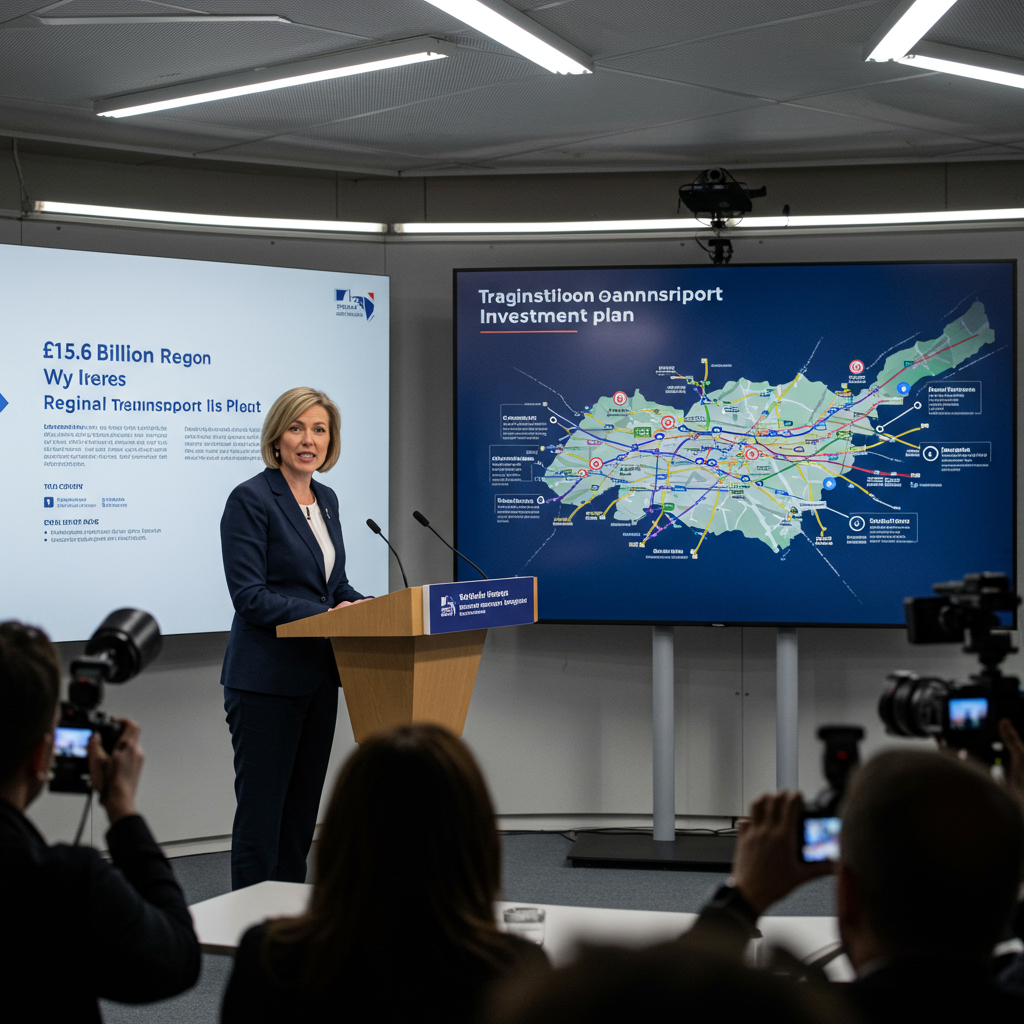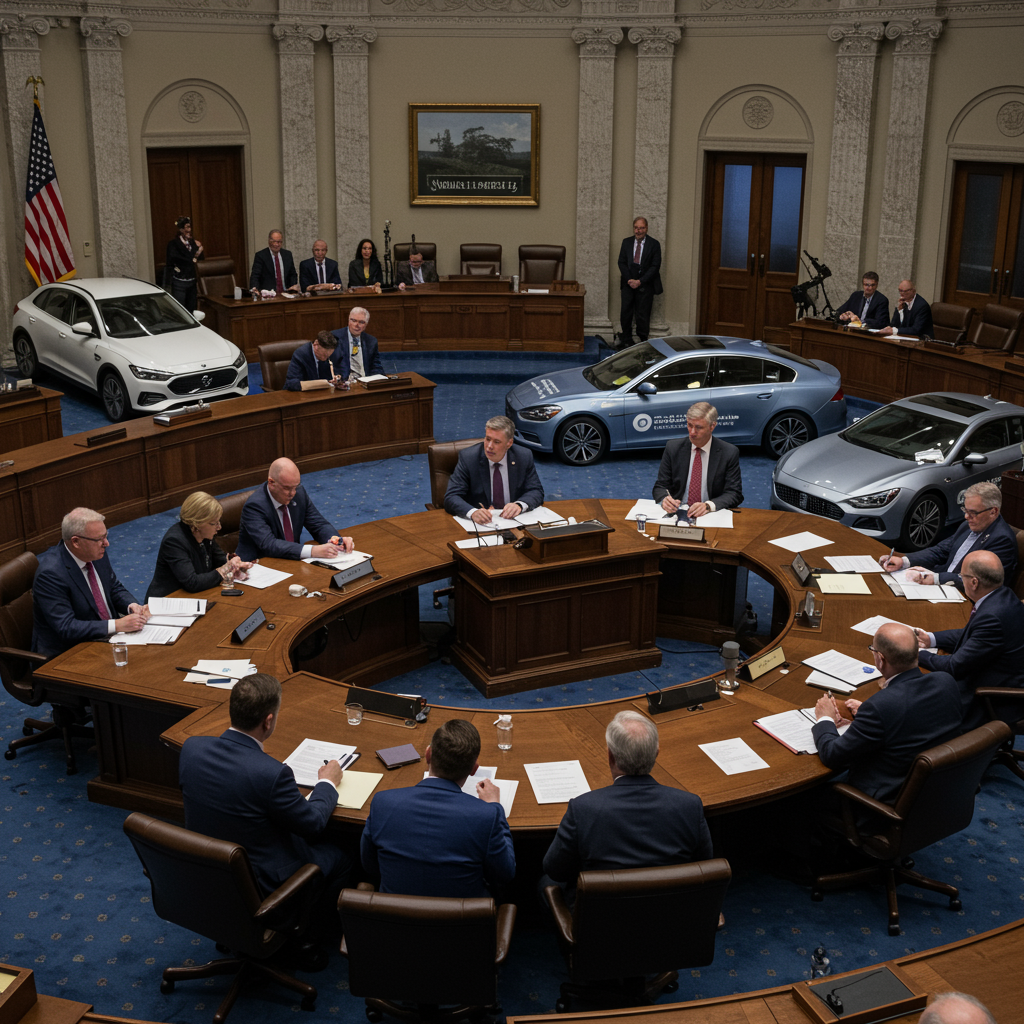Landmark £15.6 Billion Transport Investment Announced for UK Regions
Chancellor Rachel Reeves has announced a transformative £15.6 billion investment in transport infrastructure across England, specifically targeting mayoral authority areas in the Midlands, the North, and the West Country. Described as one of the most substantial investments in regional transit in over a decade, this major funding package is set to revitalise bus, tram, and train networks, enhancing connectivity and driving economic growth outside of London and the South East.
The significant sum is allocated over a five-year period, from 2027/28 to 2031/32. Treasury officials confirmed this represents a substantial uplift, effectively doubling the current regional transport spending allocation for mayoral areas from £1.14 billion in 2024-25 to approximately £2.9 billion by 2029-30.
Announcing the plans ahead of the government’s crucial Spending Review, Reeves framed the investment as a direct response to pressure to counter economic gloom and address long-standing regional disparities. It forms part of a broader proposed £113 billion total investment in capital projects planned over the parliamentary term.
Directing Funds Where They’re Needed
A core plank of the announcement is a deliberate move away from the traditional, often criticised, rules of the Treasury’s Green Book. This manual, used to assess the value for money of major projects, has been accused of favouring investments in London and the South East. Reeves argued that rigid adherence to these rules has concentrated growth in too few places, creating significant gaps between regions, cities, and towns.
By rewriting these rules, the government intends to give extra weight to schemes designed to boost productivity in the Midlands and the North, ensuring these regions receive a “fair hearing” and more equitable funding. This strategic shift aims to address decades of underinvestment and align transport spending with the government’s “levelling up” objectives.
Key Regional Allocations and Projects
The £15.6 billion Transport for City Regions (TCR) settlements will be distributed among nine eligible mayoral strategic authorities. The funding is earmarked for specific projects aimed at creating modern, sustainable, and reliable transportation systems:
Greater Manchester: £2.5 billion allocated for significant infrastructure projects. Plans include extending the Metrolink tram network to Stockport, adding new stops in Bury, Manchester, and Oldham, and developing a fully electric Bee Network.
West Midlands: Set to receive £2.4 billion. This funding will extend the region’s metro line from Birmingham city centre to the new sports quarter.
West Yorkshire: Allocated £2.1 billion to begin construction on the Mass Transit programme by 2028, with initial services targeted for the mid-2030s. Funding will also support new bus stations in Bradford and Wakefield.
South Yorkshire: Awarded £1.5 billion. Projects include renewing the tram network (£530 million specifically for this) and reforming bus services across Sheffield, Doncaster, and Rotherham by 2027.
Liverpool City Region: Receiving £1.6 billion. Plans involve improving connections to Liverpool John Lennon Airport and sports venues (including Everton and Anfield stadiums), developing three new bus rapid transit routes, and introducing a new fleet of buses in St Helens and the Wirral next year.
North East: Allocated £1.8 billion. Proposed projects include extending the Metro system to link Newcastle and Sunderland via Washington.
West of England: Set to receive £800 million. Funding aims to improve rail infrastructure, increase train frequency between the Brabazon industrial estate in Bristol and the city centre, and develop mass transit between Bristol, Bath, South Gloucestershire, and North Somerset.
Tees Valley: Allocated £1 billion. Part of the funds is planned for the platform 3 extension at Middlesbrough station, among other initiatives.
- East Midlands: Receiving £2 billion. This includes designing a new mass transit system connecting Derby and Nottingham, alongside road, rail, and bus improvements across the Trent Arc corridor.
- https://www.bbc.com/news/articles/c331ln47e7ko
- https://www.bbc.co.uk/news/articles/c331ln47e7ko
- https://www.theguardian.com/politics/2025/jun/04/rachel-reeves-unveils-15bn-for-trams-trains-and-buses-outside-london
- https://www.highwaysmagazine.co.uk/Chancellor-announces-15bn-for-transport-projects/14555
- https://vocal.media/theSwamp/chancellor-announces-15bn-for-transport-projects-4gall0aid
Beyond these specific projects, the investment aims to enhance national connectivity, reduce travel times and congestion, support environmental objectives through sustainable options like zero-emission buses, and stimulate economic expansion by upgrading infrastructure crucial for trade, industry, and innovation.
Political Reactions and Future Challenges
The announcement has garnered a mix of reactions. Conservative shadow Treasury minister Gareth Davies accused Labour of simply rehashing previous Conservative announcements. Tees Valley Mayor Ben Houchen, while frustrated by perceived delays, ultimately welcomed the funding approval. Labour mayors were more effusive, with Kim McGuinness (North East) calling it a “game changer” and Steve Rotheram (Liverpool City Region) a “massive vote of confidence.”
Liberal Democrat spokeswoman Daisy Cooper urged the government to ensure delivery, citing past instances of “phantom transport networks,” and advocated for fare reductions alongside infrastructure spending. Zoe Billingham from the IPPR North think tank welcomed the capital investment but raised concerns about the long-term financial sustainability and ongoing running costs of the new networks.
The investment precedes difficult decisions expected in the upcoming Spending Review, where the Chancellor faces pressure from departments seeking increased day-to-day funding amidst calls for fiscal responsibility. While the transport investment provides a positive narrative of capital spending, negotiations with departments like the Home Office and those covering energy and housing reportedly faced tensions over potential cuts elsewhere.
Asked about potential funding for a new rail link between Manchester and Liverpool, Reeves hinted that “more to come next week” would be revealed in the Spending Review, suggesting further transport announcements may be on the horizon.
Transport and industry figures have largely welcomed the funding, highlighting its potential to improve lives, unlock opportunities, and drive inclusive economic growth. Experts note that investment in local and regional infrastructure is vital for national economic growth and can act as a catalyst for wider city regeneration, boosting investor confidence and enabling skills investment.




